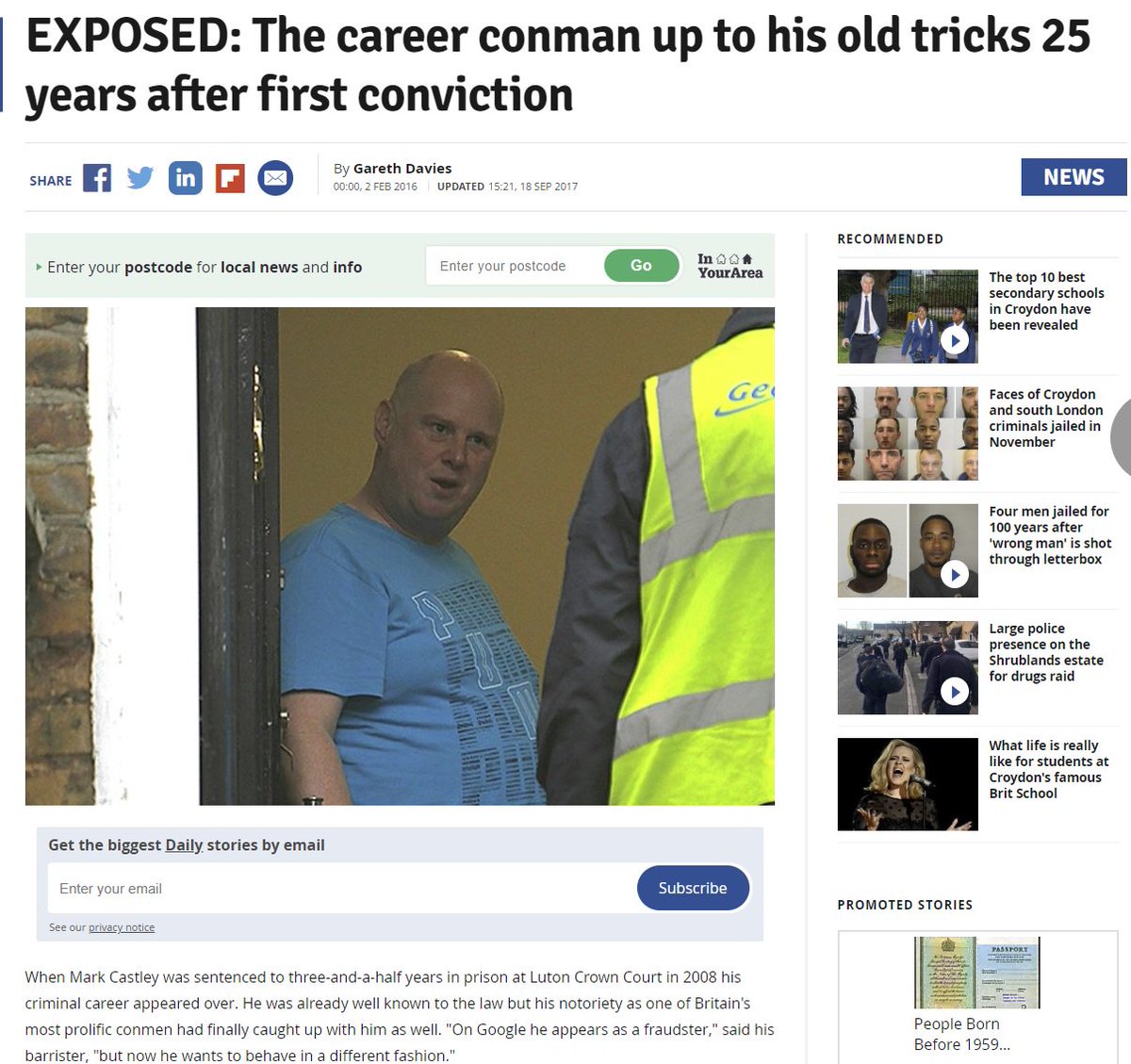
THREAD: Auditor Grant Thornton has issued a rare 'public interest report' into the crisis at Croydon Council.
It's an indictment of serious financial mismanagement, and a microcosm of the risks, highlighted by @TBIJ's work, taken by an increasing no. of local authorities
It's an indictment of serious financial mismanagement, and a microcosm of the risks, highlighted by @TBIJ's work, taken by an increasing no. of local authorities
For those not aware, Croydon Council is on the verge of financial collapse. It faces a budget gap of £65m, far in excess of its reserves. As such it was hopelessly ill-prepared for Covid-19 and the council has, in effect, sought a bailout from @mhclg
Grant Thornton first raised the alarm about the council's financial position (specifically the rate at which it was burning through reserves) in 17/18. It did so again, in worsening terms, in 18/19 and 19/20.
These warnings were effectively ignored, the report says.
These warnings were effectively ignored, the report says.
Croydon has had "unsustainably low" reserves for several years. In fact, as a percentage of its net budget the council's reserves were the lowest in London. The issue was highlighted not just by the auditor but @CIPFA and @TheIFS.
The council failed to act.
The council failed to act.
.@TBIJ first used reserve levels among several key factors to identify councils in particular financial stress back in February 2018 thebureauinvestigates.com/stories/2018-0…
Those factors were based off similar audits of Northamptonshire County Council, which would hit the headlines weeks later when it effectively went bankrupt.
Croydon's situation is biggest crisis to face a local authority since then
Croydon's situation is biggest crisis to face a local authority since then
Annual overspends on children's and adult social care are a significant cause of the council's financial woes. While certainly not alone in facing these pressures, Croydon had to inject millions into children's services after an inadequate Ofsted report in Sept 2017
Croydon tried to address the overspends by selling off £72m in publicly-owned assets and using the cash to fund cost-cutting measures. However, Grant Thornton found "little evidence" the money achieved any of its intended objectives. Indeed social care spending continues to rise
In March 2019, our #SoldFromUnderYou investigation into this so-called flexible receipts policy found councils were using money from selling off things like libraries and community centres to fund hundreds of redundancies, often to frontline services thebureauinvestigates.com/stories/2019-0…
Croydon also turned to property investment in an attempt to bring in extra money - with disastrous consequences. In August 2018 the council leader bought a local hotel for £30 million using delegated powers. Earlier this year the hotel went into administration
The public interest report says the property investments the council has made lacked understanding of the retail and leisure market and were another illustration of the council's "inherently flawed" attempt to "invest its way out of" its problems
Croydon is far from alone in adopting such an approach. Our investigation has highlighted concerning examples, such as Spelthorne and Thurrock, of councils betting huge sums of public money on investments in attempt to replace lost government funding thebureauinvestigates.com/stories/2018-1…
Croydon's property investments were funded by borrowing, which has risen £545m in three years. Much of that money was invested in companies the council established, companies which have yet to provide any significant return
The report repeatedly highlights the same failings - a lack of scrutiny, accountability, understanding and urgency. It accuses the council of "collective corporate blindness to both the seriousness of the financial position and the urgency with which actions need to be taken"
Those most directly responsible for the mess - the council leader Tony Newman, the finance lead Simon Hall and the chief executive Jo Negrini, all left their posts (the two councillors in recent weeks) before the publication of the public interest report
But its clear from reading the auditor's findings that the whole administration, including Labour members, were responsible for failing to recognise the severity of the issues facing the council and being too ready to accept the reassurances and solutions that were presented
According to figures published earlier this year, this is only the 7 public interest report issued by a local authority auditor since 2013-14. Its findings should act as a clear warning for town halls across the UK
To solve its problems Croydon turned to its reserves, selling off public spaces, setting up its own companies and investing in property.
In doing so it repeatedly assured the public that what it was doing was safe and proportionate.
It is far from alone in both regards.
In doing so it repeatedly assured the public that what it was doing was safe and proportionate.
It is far from alone in both regards.
The Grant Thornton report is arguably the most damning assessment of a council's mismanagement since Northants in 2018. There may be others on the horizon. Earlier this month we revealed KMPG may take Spelthorne to court over its "unlawful" investments thebureauinvestigates.com/stories/2020-1…
The problem running through all of this is secrecy. The public are constantly told that checks and balances have been done, that the benefits far outweigh the risks. But they are constantly denied the info they need to judge for themselves thebureauinvestigates.com/stories/2020-1…
• • •
Missing some Tweet in this thread? You can try to
force a refresh







